
No one alive today remembers the last global pandemic in 1918-19. Some of us remember a war or two—or more. Many of us remember 9/11, and so that anxious, helpless feeling is unfortunately familiar. We cast around looking for answers and hope that science and tech will hurry up and save us. Maybe they will. But perhaps just as critical as new technology itself is the attitude that accompanies its creation: an appreciation for the fact that we’re all in this together.
There are people who have made it their mission to use tech to serve humanity and the greater good. They are engineers and scientists and entrepreneurs and businesspeople who live compassion, empathy, and concern for others every day. CHM is fortunate to have crossed paths with many of these inspiring individuals over the years. Here are timely lessons we can learn from them as we look forward to building a better future for us all.
“You need to do what you think is the path that will do the right thing by your customers and by your employees and by your aspirational goals.”
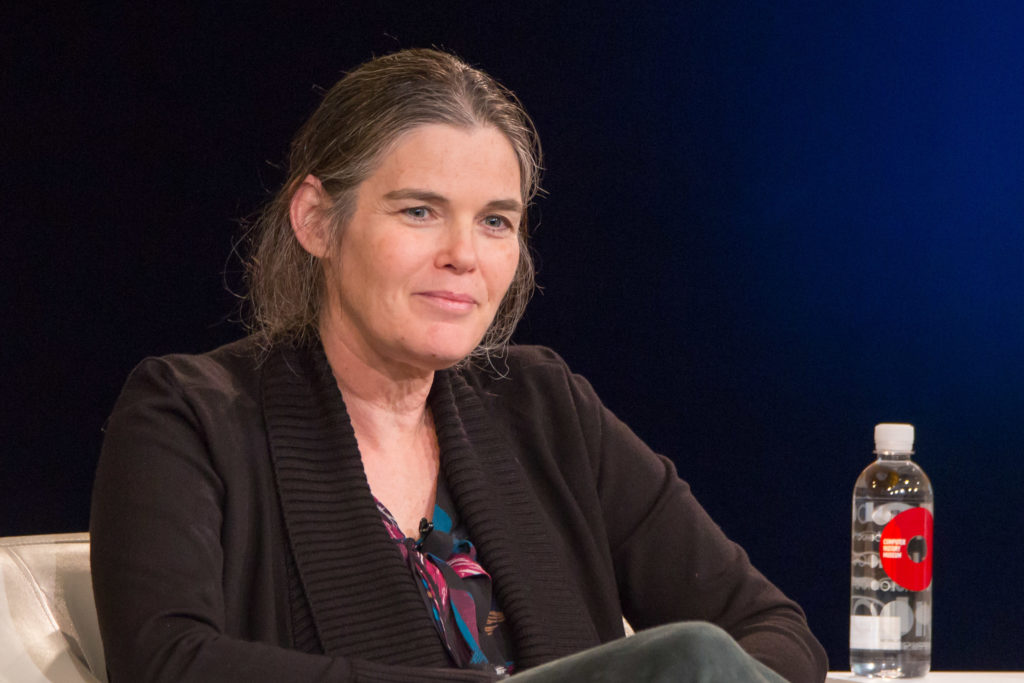
Daphne Koller at CHM in 2017
MacArthur fellow Daphne Koller graduated from college at 17, earned a PhD in computer science at Stanford, and is an expert in applying artificial intelligence to the biomedical sciences. She founded Insitro to lead a diverse team in discovering and developing new drugs using machine learning and computational biology to deliver better drugs to those who need them.
But years before founding Insitro, Koller was a Stanford professor who cofounded Coursera, with a mission to make quality education available online to anyone, anywhere for free. Locked down during the pandemic, many of us are no doubt taking advantage of the platform. But Koller’s vision for the service was global and inclusive. She talks about how a woman in Bangladesh used Coursera to take classes so she could start her own business and employ fellow survivors of domestic abuse. Technology has significantly and materially changed the life of a woman on the opposite side of the globe, but it took Daphne Koller’s deep empathy for underserved strangers to make that happen. Read more.
Like providing education to the world, opening up economic opportunities to anyone, anywhere rests on an underlying belief that every person has value and untapped potential. It is the exact opposite of “pattern-matching,” or the idea that successful people conform to certain, often biased, stereotypes. Instead, it reflects a profound empathy and understanding that except for the accident of birth or circumstance, we might find ourselves in the same condition as someone else.
“Entrepreneurs are the world’s greatest change agents. It’s the most powerful way to move the human ecosystem forward, to advance our evolution.”
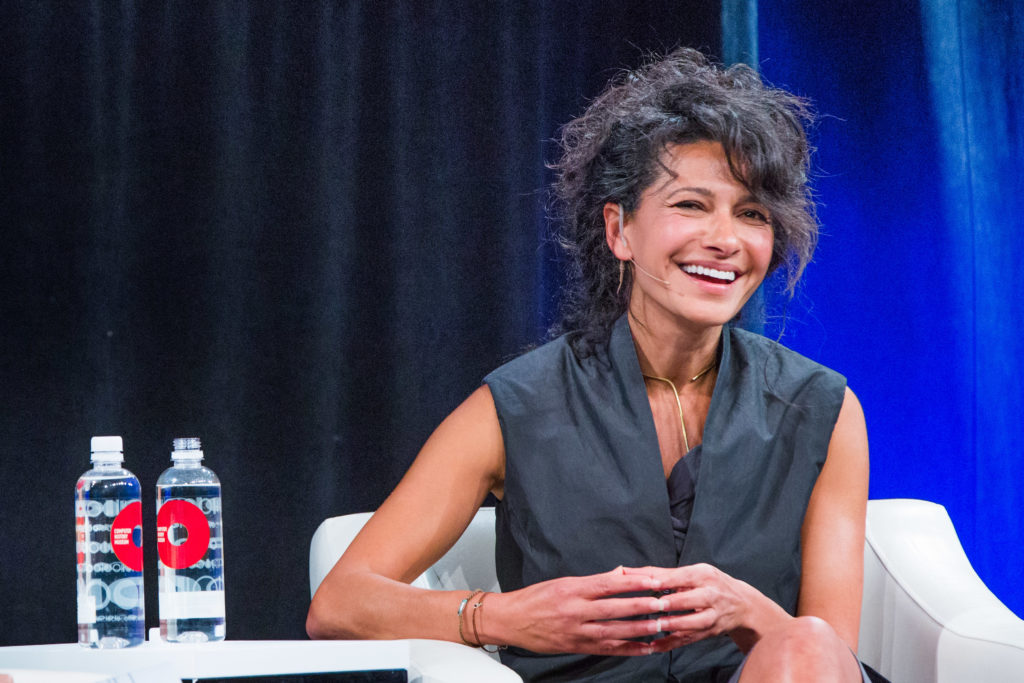
Julie Hanna at CHM in 2016
As executive chairman of Kiva, a marketplace that crowdfunds loans to underserved entrepreneurs, Julie Hanna has seen entrepreneurship unlock the democratizing potential of technology. She describes one loan that enabled human trafficking victims in Cambodia to purchase sewing machines, starting a business that helped them rebuild their lives. Read more.
Entrepreneurship takes on added significance during a crisis like the COVID-19 pandemic because it will be a way for people to create and find jobs during a major recession. Crowdfunding can help us act on and amplify our empathy for aspiring entrepreneurs, extending more support together than we can as individuals. Corporations can also get involved. Purpose and profit align well in the long term, Julie Hanna says. Shareholders who understand this can help shape companies that prioritize social good, not just in their products and services but also in their culture.
“Every successful company, nonprofit, educational institution, government needs to be constantly improving. The most important thing to improve is yourself. . . . if you're not critiquing yourself, you're not keeping up your end of the bargain.”
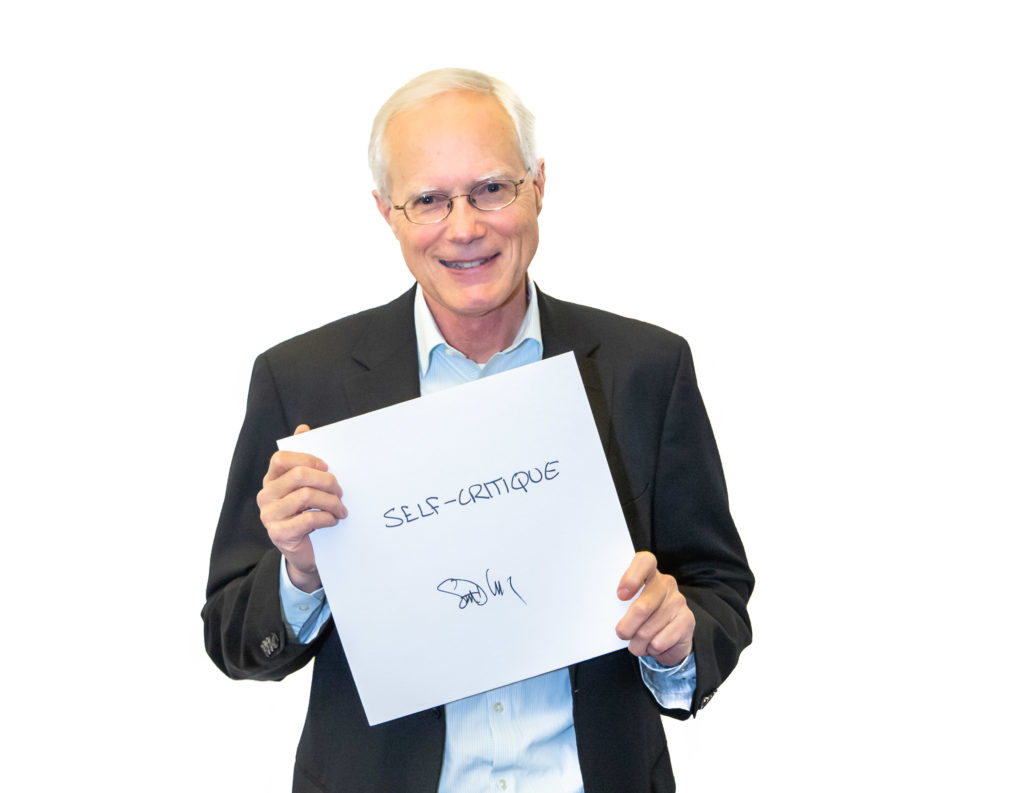
Scott Cook shares his “one word” of advice at CHM in 2018
Scott Cook founded Intuit to make paying bills fast and easy for consumers who might not be financial whizzes. Although there were many competing personal finance companies, none had done any product testing with consumers. Listening closely (some say obsessively) to what his customers wanted led to the development of the wildly popular QuickBooks, accounting software for the small businesses that can be the lifeblood of a community. Empathy for customers and employees is often good business, creating evangelists out of both that can contribute to higher profits and lower turnover. But it’s just one aspect of a human-focused culture that also tolerates mistakes and encourages self-awareness, as demonstrated by Cook himself. He stepped down as CEO when he felt his skills were not growing fast enough to serve the company. Learn more about the Intuit story.
It’s during the hard times, not when things are going smoothly, that a leader’s true values come to the fore. Will they cash out and leave their employees and customers in the lurch when the going gets tough, or will they buckle in, share the hardship, and do their utmost to drive through a downturn?
“You have a responsibility to your employees. You’re the one that has to go without a paycheck for a while. And if you do that, and you’re tenacious enough to hang in there, things always come back.”
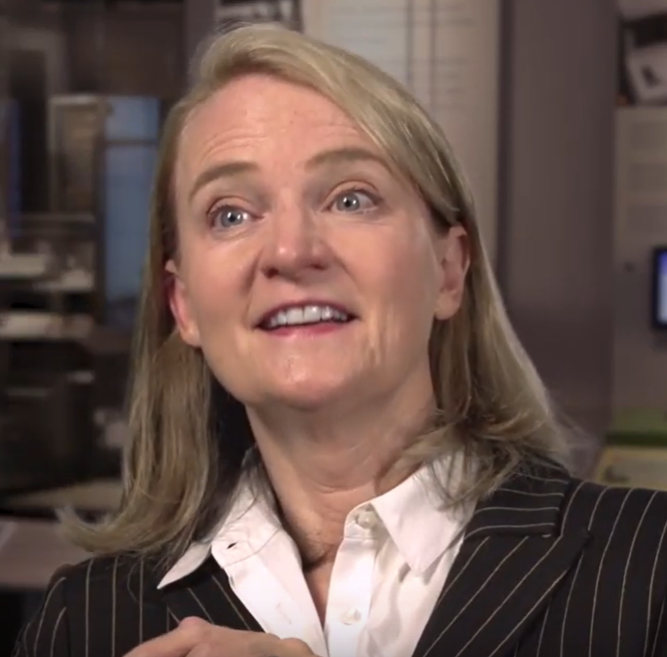
Peggy Burke participates in a CHM oral history in 2018
Peggy Burke founded 1185 Design, a long-time go-to branding agency for established tech companies and startups. The late ’90s were lucrative for 1185 and its internet-boom clients, and many spent lavishly on everything from advertising to parties. Burke, though, saved as much as she could. When she was young, her family lost nearly everything in a recession, and the experience taught her to always prepare for a rainy day.
By late 2001, the dot-com bust and the aftermath of 9/11 forced many companies to shrink or close. 1185 lost every client but one. Burke’s savings could not totally make up for the loss of revenue and she was forced to lay off half her work force. Still, she had enough to give employees six months severance pay and 1185 continued operating even as rival agencies shut down completely. Though Burke recalls that time as one of the most difficult in her life, her responsible behavior allowed her to do the right thing and made the next crisis, the 2008 downturn, feel like “a blip.” Learn more.
“We had no other products, no new equipment, no new people. The same people who were going down the tubes took it out of the tubes.”
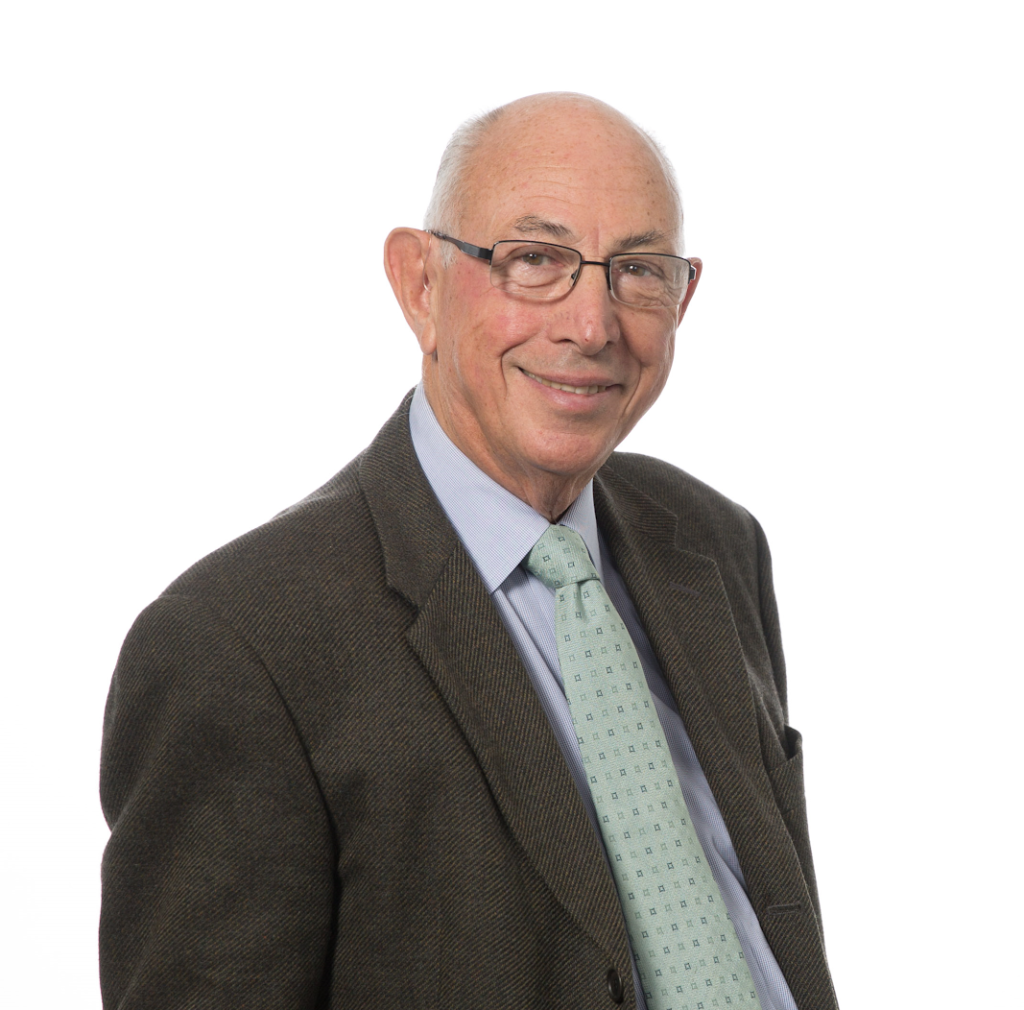
Irwin Federman participated in a CHM oral history in 2016
From modest roots in Brooklyn, Irwin Federman became a sought-after Silicon Valley startup CFO. Promoted to president by the board of the troubled Monolithic Memories in the late ’70s, Federman took an all-hands-on-deck approach to turning around a company known as a “loser.” He brought in employees’ spouses and kids, gave them pizza, and played music while they worked to repair salvageable stock that volunteers from sales and accounting helped test, in an atmosphere like “a baseball game when there’s a huge rally going on.” Federman made posters with the company’s new slogan: STP, for Self-fulfilling prophecies, Trust, and Pride. In six months, Monolithic was in the black and employees were recruiting colleagues to what had become “the company you always wanted to work for.” That culture helped the company weather later downturns, with people working four-day weeks and using vacation time to help avoid layoffs.
Federman’s human-centered company culture not only worked, it expressed his personal vision, that whenever one of his employees walked into the local bar “everyone would stand up and applaud.” If the humanistic values of Federman and Peggy Burke undergirded work culture in general, creative and resilient companies and employees would be ready to tackle new global challenges together.
Some business leaders are committed to promoting ethical business practices that consider long-term impact and greater gender, racial, and socio-economic diversity in hiring and work opportunities. They can serve as models for how to introduce or expand those efforts in other organizations and across business in general.
“In order to be a good leader you have to be a good person first. In order to lead others, you have to lead yourself first.”
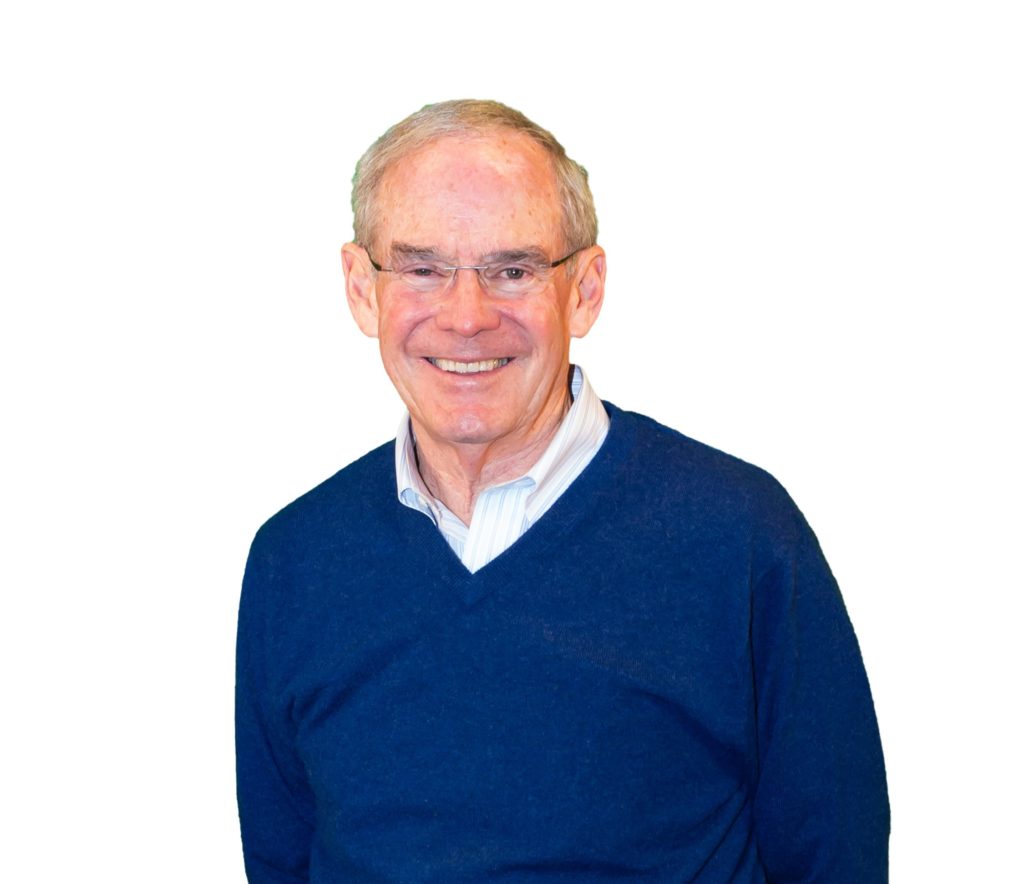
Eff Martin participated in an oral history at CHM in 2019
A pioneering investment banker in the high tech sector, Eff Martin oversaw deals with Microsoft, Apple, Sun Microsystems and others over decades at Goldman Sachs. At the height of the dot-com boom, he recalls hearing someone call Silicon Valley “the greed capital of the world.” Though he brushed it off at the time, he soon witnessed how excess and poor judgment led many internet startups to fail. As the Valley has grown and prospered in the two decades since, he says, so has the temptation and rewards for greed, with Theranos as a heartbreaking example.
Martin hopes people will see that there is more to business—and to life—than making money. To help instill that belief in young people, he co-teaches a course called “Conscientious Capitalism” at Santa Clara University. With the help of mentors, students learn how they can apply personal virtue, purpose, and accountability as future business leaders.
Companies and individuals who advocate for equity and access within the business and tech world, know that when individual companies change they promote a shift in culture overall.

Reid Hoffman at CHM in 2018
Reid Hoffman, cofounder of LinkedIn and a partner at storied venture capital firm Greylock, says, “If you’re not part of the solution, you’re part of the problem.” He’s committed to featuring 50 percent women on his popular podcast, and he insists that everyone ask what they’ve done “this week” to make things better in order to hold themselves accountable. Read more.
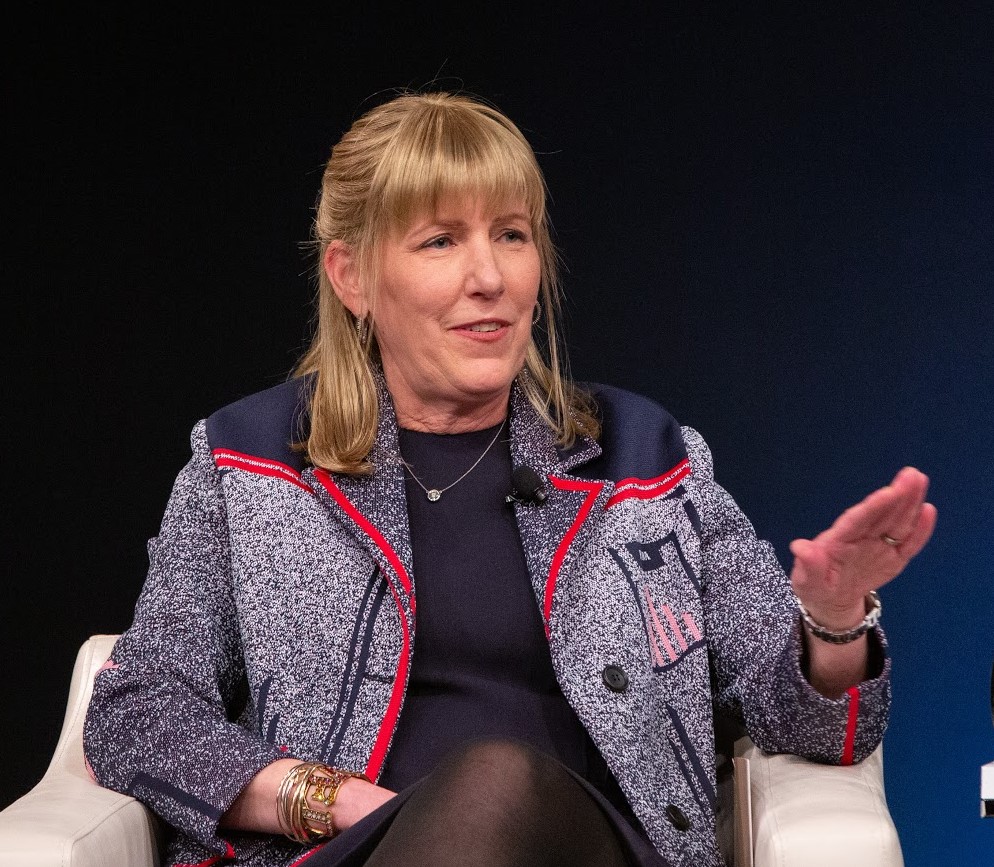
Sonja Hoel Perkins at CHM in 2019
Broadway Angels is an angel investment group made up of successful investors and business executives who happen to be women, with the valuable byproduct of highlighting women’s achievements in business and technology. As cofounder Sonja Hoel Perkins notes, “...we have a visible place where people can see women who are actually doing things like funding and founding Tesla and funding and founding Salesforce, and they can try to become like them.” Read more.
Silicon Valley law firm Fenwick & West recruits new employees from diverse backgrounds and sponsors an annual conference “on women, for women,” partner Gordy Davidson, who’s made it a personal mission to increase the number of women in leadership positions, explained in a recent oral history for CHM.
But companies can only do so much. Real, lasting change needs to be backed up by robust policy at all levels of government.
A global challenge like the COVID-19 pandemic affects us all, but access to information about it has not been universal. Secrecy and failure to acknowledge the facts by some government leaders have prevented many from understanding and effectively responding to the crisis. To work together toward the greater good, transparency and a commitment to serving the public is critical.
“For we are at a crossroads—as individuals, organizations and governments increasingly depend upon computerized information and digital communications. . . . Customs, policies, regulations and statutes governing this new environment will be created. The question is: Who will create them and what will they be?”
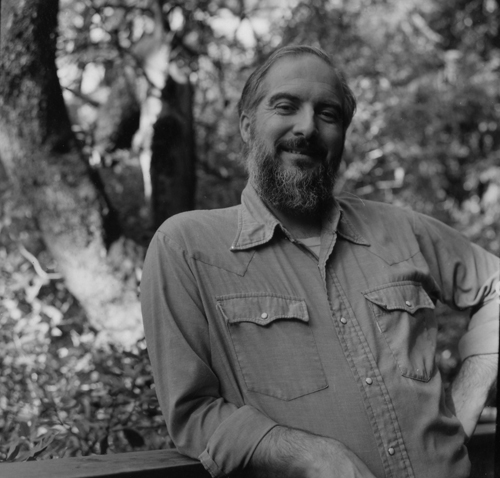
Jim Warren in a snapshot from CHM’s collection
West Coast Computer Faire founder Jim Warren has had a lifelong commitment to public transparency and privacy in technology. The founding chair of the 1991 Conference on Computers, Freedom, and Privacy, he assisted with key technical language for California Assembly Bill 1624 (1993) mandating that computerized public legislative records be made available to the public online at no cost. Warren also advocated for electronic access to public records and online accessibility of political-campaign financial statements. See his papers in CHM’s collection.
“Kindness is as important as knowledge and intensity.”
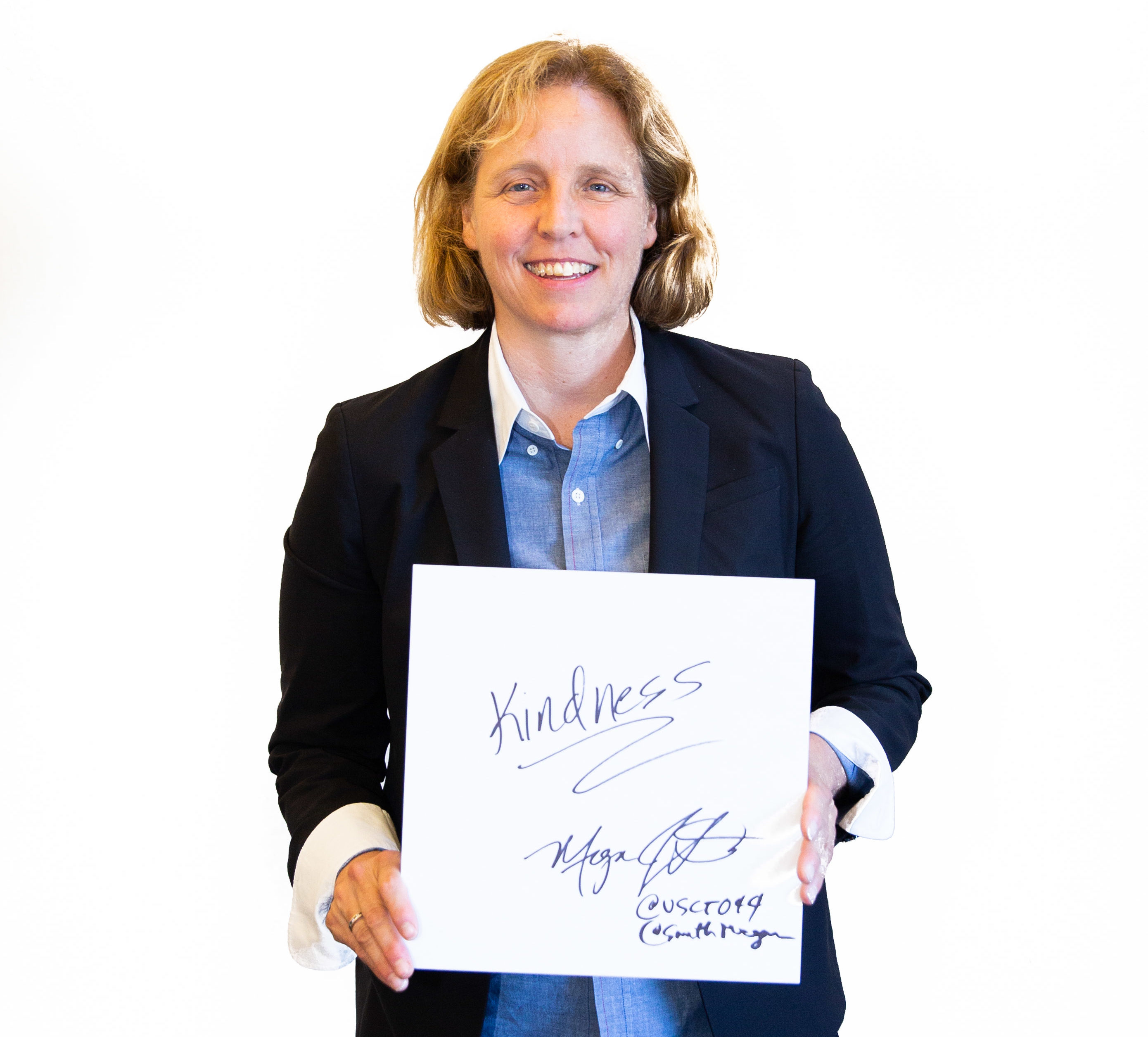
Megan Smith shares her “one word” of advice at CHM in 2018
In her former positions as VP of business development at Google and CTO of the United States, Megan Smith gained a unique knowledge of the tech and public service sectors, but noticed too little cross-pollination between them. She founded Shift7 to help create cross-functional teams that draw on expertise from tech, public service, and other areas to solve complex, systemic problems.
The lesson is that while companies, governments and individuals can each make a positive difference, collaboration between them unlocks greater potential for impact. Even as crises breed an insular focus and fear of the unknown, combining talent and resources is our best chance of achieving a common good. Humanity needs everyone to do what they can to help. Do not underestimate the power of simple kindness.